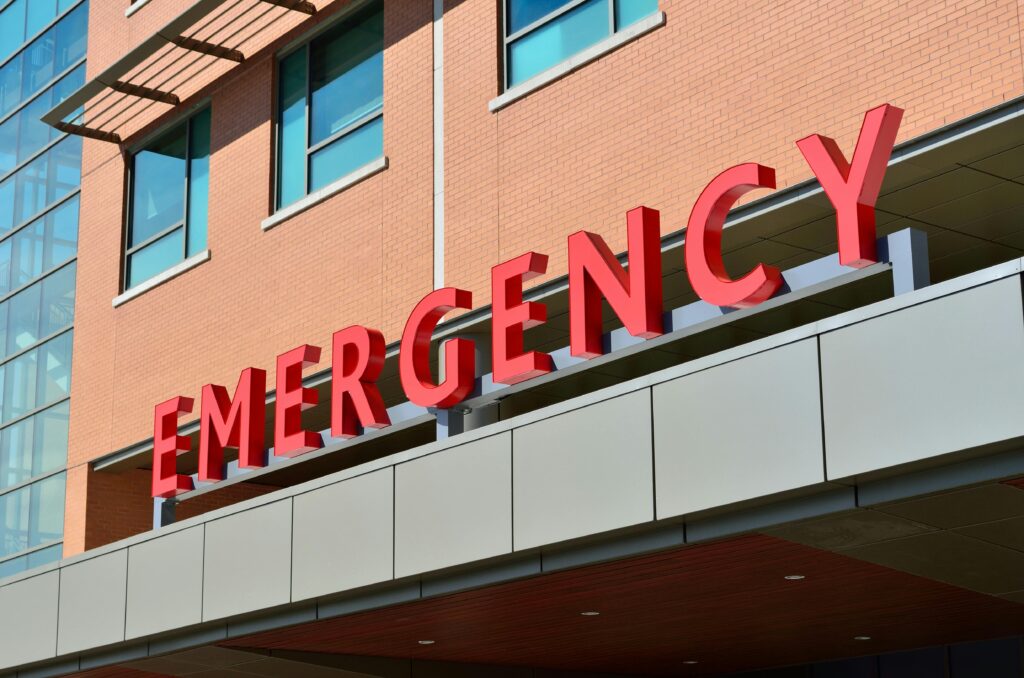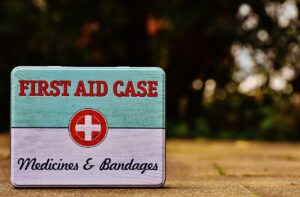Last updated on October 6th, 2024 at 07:53 pm

It never feels good not to feel good. When you can’t get to your primary care physician, visiting a walk-in clinic or urgent care center is a perfectly suitable substitute. While choosing to go to an urgent care center could mean longer wait times than a visit to your doctor, if you are experiencing non-life-threatening acute symptoms, a walk-in clinic is your next best option. Walk-in clinics and urgent care centers are equipped to handle a variety of common ailments. Accidents happen all of the time. For instance, you’re preparing dinner and you unintentionally slice into your thumb rather than the carrot and you’re bleeding. You think you might need stitches. A walk-in clinic can get you back in your kitchen relatively sooner than your local emergency room. Perhaps you’re out of town and some unforeseen problem occurs, a walk-in clinic can help save your vacation, allowing you to receive hassle-free medical attention.
One of the advantages of visiting Premier Family Medical Urgent Care is the convenience. Unlike primary care physicians who often require appointments, walk-in clinics allow patients to be seen on a first-come, first-served basis. This means that you can receive medical attention without the need for advance scheduling. Moreover, walk-in clinics have extended hours, making them a viable option for those who cannot take time off work or have busy schedules. They are often open on evenings, weekends, and even holidays, providing accessible healthcare when you need it most. Another benefit of walk-in clinics is their affordability. Compared to emergency rooms, which can be quite expensive, walk-in clinics offer more cost-effective healthcare options. They accept various insurance plans and also provide self-pay options for those without insurance.
Many communities do not have access to a hospital, so urgent care centers play a critical role in certain areas. Some of the more common services that walk-in clinics can provide include treatment for minor injuries such as cuts, sprains, and burns. They can also address common illnesses like the flu, colds, and some infections. Additionally, walk-in clinics offer services such as vaccinations, physical exams, and diagnostic tests like X-rays and blood work. Urgent care centers and walk-in clinics are great community resources for situations that are not life-threatening but still require prompt medical attention. For serious or life-threatening emergencies, it’s best to go to an emergency room or call 9-1-1 emergency medical assistance.
Cold and Flu Symptoms
One of the most common reasons patients visit a walk-in clinic is for quality care for cold and flu symptoms. While a cold or the flu is generally tolerated well by many people, it can cause some major complications for others. In order to avoid some of these costly and even fatal complications, a walk-in clinic visit could be necessary. Timely medical treatment can have a huge impact on patient outcomes.
Sprains and Fractures
Sprains and fractures are treatable at urgent care centers because they do not require any surgery. Walk-in clinics can brace fractures, and offer splints, casts, and other stabilizing devices to prevent further injury, while also providing any necessary pain medications to keep you comfortable in the early stages of your injury.
Urinary Tract Infections
Bladder infections and UTIs are common problems in both children and adults, and they can be very uncomfortable. The sudden urgency to use the restroom, the discomfort when urinating, the lower back pain, and frequent urination are hallmark symptoms that can be easily tested, identified, and successfully treated. A course of antibiotics is the typical treatment, however, a common home remedy is unsweetened, not from concentrate, 100% cranberry juice.
Allergy Reactions
Non-life-threatening allergic reactions can be handled by clinics. Whether it’s hives, rash, or something else, a major reaction to something can be really uncomfortable. When you don’t have the proper tools to calm an allergic reaction, your local clinic can help. If you are having a severe allergic reaction that is causing swelling of the airways, please seek emergency medical treatment, as anaphylaxis can be fatal if left unchecked.
Wounds and Lacerations
Minor wounds, lacerations, and burns are other common ailments that physicians and staff at walk-in clinics are well accustomed to treating. Head on over to urgent care when you whack your finger with a hammer, drop a can of paint on your big toe, or cut yourself on the sheet metal you’re using to build a tree house. They can stitch the wound back together, give you a tetanus shot and antibiotics if needed, and apply medicated wrapping or bracing to the affected area.
Nausea and Diarrhea
Persistent nausea and diarrhea can be a complex and uncomfortable condition to treat if you think you may be suffering from a virus, a clinician can diagnose and treat your problem. Older patients and infants need to be seen quickly to avoid life-threatening dehydration as they are a more vulnerable population.
Preventative Care
You can also go to a walk-in clinic for vaccinations that are needed for school or work, routine annual physicals, work physicals, lab work, and even drug testing. Rapid tests like strep, COVID-19, and flu are also available at many walk-in clinics. No matter your age or stage of life, an urgent care center can spare you a lot of time when your doctor is not proximal or their schedule is too full to squeeze you in.
If you’d like to avoid going to the local emergency department and cannot be seen by your usual medical professional, a walk-in clinic is the perfect middle ground. Overall, walk-in clinics serve as a convenient and reliable alternative when you are unable to see your primary care physician. With their ability to handle a range of common ailments and injuries, extended hours, and affordability, they provide accessible and efficient medical care. Depending on the reason for your visit, it may be necessary to make an appointment with your primary care physician for follow-up care to ensure that your health is heading in the right direction.






